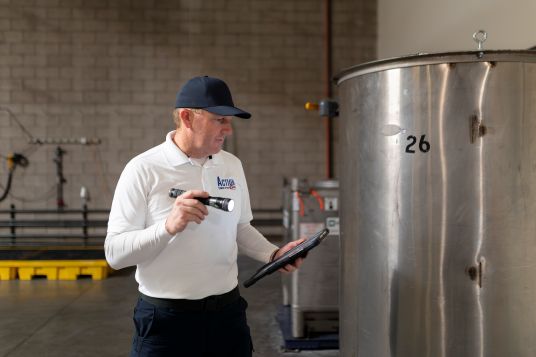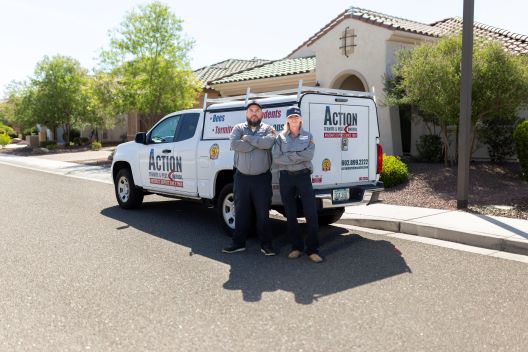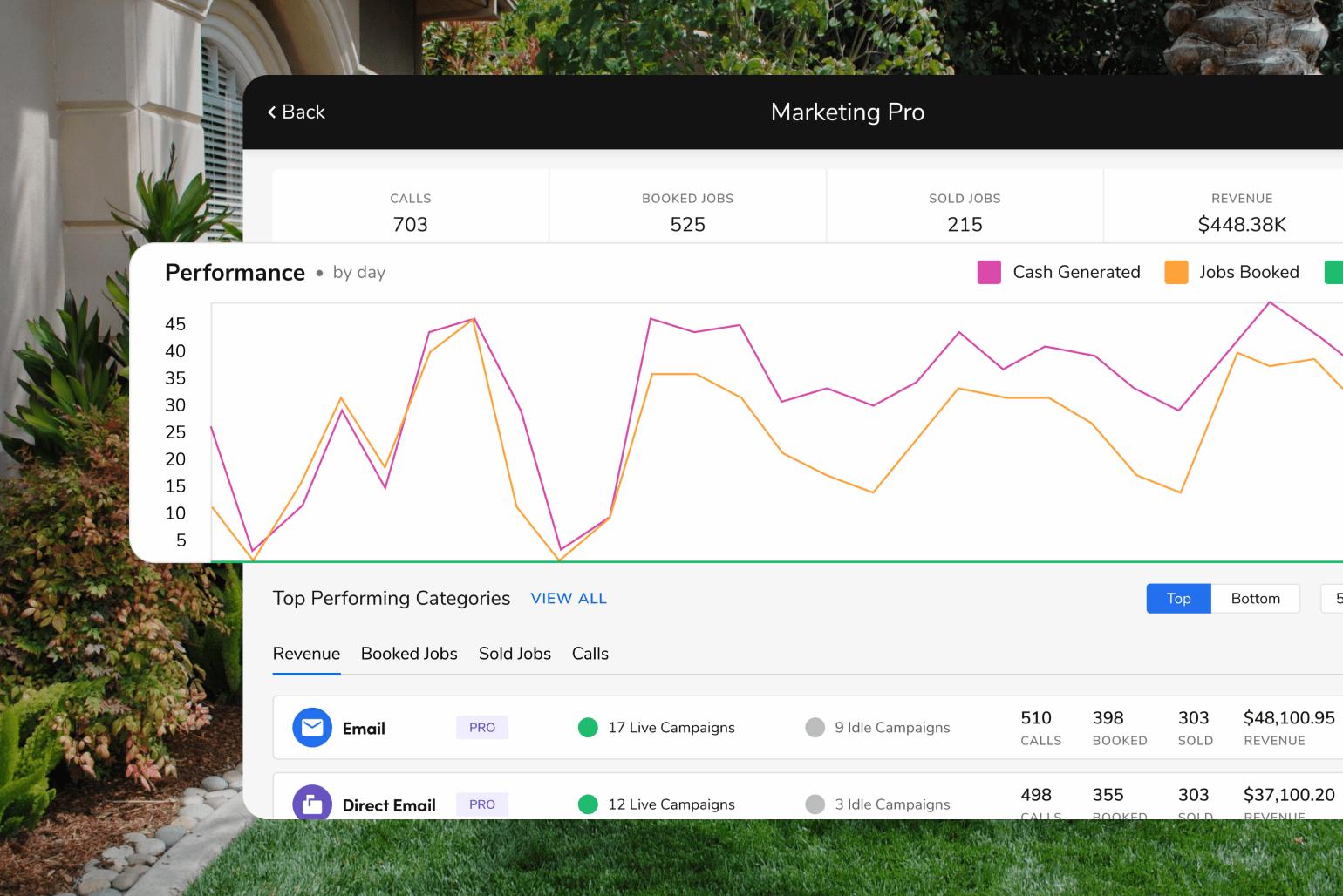How to Win Government Pest Control Contracts (+Bidding Tips)

Winning government contracts for pest control can be a game changer for small businesses.
These contracts provide steady income, long-term stability, and credibility, helping pest control companies expand their customer base. Local, state, and federal government agencies need pest control for housing authorities, schools, military bases, and public infrastructure, making them a great market for service providers.
But securing government pest control contracts isn’t easy.
The bidding process is competitive.
You have to navigate solicitations, RFQs (Requests for Quotes) and RFPs (Requests for Proposals) and ensure you comply with Integrated Pest Management (IPM) standards. Many pest control businesses struggle with complex paperwork, regulations and competition from bigger companies.
This guide breaks down the process into clear, actionable steps.
Learn how to prepare bids, meet compliance requirements, and position your business as a strong contender for these government opportunities.
Why Pursue Government Contracts for Pest Control?
Winning government contracts for pest control services means long-term financial stability and growth opportunities.
Unlike private clients, local government, federal agencies and public institutions need ongoing exterminating and treatment services; they are reliable customers.
These contracts also boost credibility and competitiveness and open doors to bigger opportunities in the pest management industry. Managing pests through IPM programs ensures comprehensive pest control with minimal risk, ecological sustainability and agricultural profitability.
1. Steady and Reliable Income Source
Government contracts provide consistent work, predictable cash flow, and no more seasonal jobs. Pest control materials used in these contracts ensure effective pest management by targeting the bad pests and protecting the good ones.
Agencies have budgeted funds for pest control services and timely payments.
2. Potential for Long-Term Partnerships
Many pest control services contracts are for multiple years of ongoing revenue.
Successful contractors can secure renewals, referrals, and more submissions and projects.
3. Opportunities for Business Growth and Credibility
Securing a government contract boosts business reputation and attracts private-sector clients.
It also helps pest control companies qualify for larger bids, including state and federal projects.
4. Competitive Edge in the Market
Winning a government solicitation puts your company ahead of other bidders.
It shows your company can meet strict pest management program requirements and gives you an edge over competitors.
Getting government contracts puts your pest control business on track for higher revenue, stability and industry recognition.
Step-by-Step Guide to Securing Government Pest Control Contracts
Winning government contracts requires planning, compliance and strategic bidding. Understanding contract types, eligibility requirements, and proposal strategies can help pest control businesses navigate the procurement process.
Follow these steps to position your pest control company as a strong government service provider.
Step 1. Understand the Basics of Government Contracts
Government contracts exist at federal, state and local levels. Each has different pest management program requirements and bid processes.
Common contract types for pest control services are:
Fixed price contracts – Pay a set amount for specified exterminating or treatment services.
Indefinite delivery contracts – Allow service frequency and pesticide use flexibility based on need.
Agencies like Veterans Affairs and Housing Authority frequently solicit pest control providers for long-term contracts.
Step 2. Meet Eligibility and Compliance Requirements
Obtain necessary certifications, business licenses, and insurance to qualify for government pest control services contracts.
Register your pest control company on official websites like SAM.gov (System for Award Management) to become eligible for federal government contracts.
Secure a D-U-N-S Number through Dun & Bradstreet, a unique identifier required for federal bidding.
To meet contracting officer expectations, comply with Integrated Pest Management (IPM) standards and pesticide regulations. Careful pest control practices are crucial for minimizing risks to human health.
Step 3. Research Available Opportunities
To find pest control service solicitations, use online resources such as SAM.gov, GSA schedules and state/local government websites.
You can check RFQs (Request for Quotes) and RFPs (Request for Proposals) to find contracts that match your capabilities.
Review past bid winners to see pricing trends and successful proposal strategies.
Look for small business set-aside contracts to have an edge over larger pest control companies.
Step 4. Craft a Competitive Bid
Highlight experience, certifications and services like wildlife management, bed bug treatment or termite control.
Emphasize compliance with government regulations, including herbicide application and pest management program adherence. Target only the target organism in pest control strategies to ensure precision and minimize harm to beneficial and non-target species.
Set a competitive price point that balances profitability with affordability and meets government budget constraints.
Include testimonials from previous government or commercial clients to build trust and credibility.
Step 5. Submit Your Proposal
Follow submission guidelines and deadlines in the official solicitation addendum.
Ensure your proposal template meets formatting requirements and includes all required documents.
Double-check for errors, missing signatures and compliance-related details before submitting your pest control services bid.
Track your submission status through the relevant procurement portal and be prepared for follow-ups or modifications.
Step 6. Build Relationships with Government Agencies
Attend government networking events and procurement conferences to connect with contracting officers.
Consider subcontracting with established pest control providers to gain experience in government contracts. Emphasize integrated approaches to managing pests.
Register as a small business, veteran-owned or minority-owned provider to qualify for exclusive bidding opportunities.
Show ongoing compliance, strong past performance and proactive engagement with government agencies.
Being a trusted government contractor takes time, but the long-term benefits are worth it.
What Are the Most Common Mistakes to Avoid?
Winning government contracts for pest control services requires attention to detail, compliance, and strategic pricing. Many pest control businesses make preventable mistakes that lead to lost bids or contract termination.
Avoid these common mistakes to increase your success rate and build a strong government contracting reputation.
1. Missing Submission Deadlines or Providing Incomplete Proposals
Government contracts have strict deadlines. Submissions that are late past the due dates are automatically disqualified, regardless of bid quality.
Review solicitations, addendums and submission requirements carefully to make sure all documents are included.
Use a proposal checklist to confirm compliance with RFP and RFQ guidelines.
Register on SAM.gov and state procurement sites early to avoid last-minute technical issues.
Leave time for revisions and internal reviews before the deadline.
2. Overpricing or Underpricing Bids
Overpricing makes your pest control business less competitive, and underpricing can reduce profit margins and impact service quality.
Research past bid winners on government procurement portals to see realistic pricing strategies.
Consider operating costs, pest control services contracts, and subcontractor fees before finalizing a bid price.
Account for pesticides, treatment services, labor costs and compliance fees to avoid hidden losses.
Offer competitive and profitable pricing that meets government budget constraints.
3. Failing to Understand the Needs Outlined in the RFP
Requests for Proposals (RFPs) and Requests for Quotes (RFQs) outline exact pest control requirements.
Misinterpreting scope, service frequency or pest management program leads to proposal rejection.
Review government contract specifications, including bed bug treatments, termite control and herbicide use.
If you are unsure, ask the contracting officer for clarification before submitting a bid proposal. Make sure your proposal addresses all required pest control services and compliance measures. Effectively addressing pest problems minimizes risks to health, the environment, and economic stability.
4. Neglecting Post-Contract Compliance and Reporting Obligations
Winning the contract is just the beginning—government agencies require strict compliance and documentation.
Failure to meet pest management program standards, environmental regulations or reporting deadlines can lead to contract termination.
Keep accurate records of service reports, pesticide usage and infestation treatments to ensure compliance.
Use information technology, such as FieldRoutes pest control software, to automate invoicing, contract reporting, and scheduling for seamless compliance.
Communicate regularly with government clients to meet performance expectations and renewal opportunities.
Avoid these mistakes to improve your bidding success rate and become a trusted government provider.
What Are the Most Important Tips for Success?
Winning and maintaining government pest control contracts requires strong proposals, continuous service improvements, industry knowledge and compliance management.
Successful pest control companies build their reputation by delivering quality services, staying competitive and maintaining strong relationships with government agencies.
Follow these tips to win government pest control services contracts.
1. Focus on Clear and Concise Communication in Proposals
Government procurement officers review multiple pest control services bids. A clear proposal improves your chances of selection.
Use simple language and avoid technical jargon that may confuse evaluators.
Highlight qualifications, pest management experience and certifications to showcase expertise.
Address all RFP and RFQ requirements, including pesticide use, IPM, and wildlife management services.
Proposals must be error-free, professionally formatted and easy to read.
2. Continuously Improve Your Service Offerings
Expanding pest control services makes you more competitive and opens doors to higher-value contracts.
Consider adding bed bug treatment, termite inspections, herbicide application, and landscaping pest management. Including biological control and mechanical control methods can further enhance your pest management strategies.
Be ahead of the curve by offering eco-friendly pest control solutions aligned with government sustainability goals.
Invest in new technologies to improve efficiency and meet modern pest control standards.
Review customer feedback and industry trends to refine service quality.
3. Stay Updated on Industry Standards
Government agencies expect compliance with pest management program regulations and pesticide safety laws.
Stay informed about state and federal regulations, including GSA standards and Veterans Affairs requirements. Understanding pest resistance and plant health is key to effective pest management and sustainable agricultural practices.* Get and renew your licenses, certifications and insurance to meet contract requirements.
Monitor SAM.gov and local government websites for updates.
Participate in industry workshops, training programs, and certification courses to stay competitive.
4. Invest in Networking and Reputation-Building Efforts
Strong relationships with government officials, contracting officers and procurement teams improve the bid success rate.
Attend local government business expos, procurement fairs, and industry events to connect with decision-makers.
Partner with subcontractors and large pest control providers to increase credibility.
Gather and showcase client testimonials from previous government and commercial contracts.
Register as a small business, minority-owned or veteran-owned provider to access set-aside opportunities.
5. Maintain an Organized System for Managing Contracts and Compliance Requirements
Government contracts require detailed record-keeping and ongoing compliance tracking.
Use pest control business software like FieldRoutes to automate contract management, invoicing and reporting.
Track contract renewal deadlines, required inspections, and service schedules efficiently.
Ensure all documents, certifications, and addendums are easily accessible for audits.
Create standardized templates for proposals, bids, and compliance reports to streamline submissions.
Follow these best practices to be successful in government contracting for the long term.
How Can FieldRoutes Help with Bidding for Government Contracts?
Winning government pest control contracts requires organization, efficiency and compliance management. The process involves detailed documentation, strict deadlines, and ongoing reporting—all of which can be overwhelming for pest control companies.
FieldRoutes simplifies the process by automating administrative tasks, optimizing scheduling, and improving contract management. With end-to-end functionality, businesses can streamline operations, enhance compliance tracking, and position themselves as strong bidders for government contracts.
Using FieldRoutes pest control software, businesses can reduce errors, increase efficiency, and present themselves as professional, reliable service providers, which is key to winning government contracts.
Streamlining Administrative Processes and Compliance Tracking
Automated document storage and compliance tracking keep all government contract paperwork in one place.
Simplifies bid submissions, RFP responses and reporting requirements to avoid missed deadlines.
It provides easy access to licensing, pesticide usage records and pest management program compliance documents. Monitoring the population is key to pest management and compliance.
Reduces the risk of submission errors that can disqualify bids.
Learn how FieldRoutes simplifies compliance management.
Efficient Scheduling and Dispatching for Large-Scale Projects
Drag-and-drop scheduling to quickly assign jobs for government contract requirements.
Optimized routing tools to get technicians to sites efficiently, reducing fuel and labor costs.
Automates recurring treatment services for long-term pest control contracts. Habitat manipulation is key to the long-term prevention of pests.
Supports multi-location pest control projects such as housing authorities, military bases, and federal facilities.
See how FieldRoutes improves scheduling and dispatching.
Professional Reporting Features to Present a Reliable Business
Customizable reporting visuals to show performance metrics to contracting officers.
Generates compliance reports to meet government pest control program requirements.
It produces invoicing and financial tracking and simplifies payment submissions. Pest management must address invasive species to mitigate economic and environmental impacts.
Ensures transparency with real-time tracking of treatment services, herbicide use, and wildlife management.
Discover how FieldRoutes enhances reporting features.
Enhancing Customer and Contract Management to Meet Government Expectations
CRM tools to manage contract requirements, deadlines, and customer interactions.
Automates reminders for contract renewals, invoicing, and reporting deadlines. IPM practices are also critical in pest management as they integrate multiple pest control methods for sustainable farming.
Improves customer communication through automated email and text alerts.
It provides a seamless experience for government agencies to help businesses get repeat contracts.
Find out how FieldRoutes optimizes contract management.
Integration of All Business Processes into One Easy-to-Use Platform
Centralized workflow management to streamline all operational processes.* Reduces paperwork by automating compliance tracking, reporting, and submissions. Target the specific pest in pest management to ensure effective and sustainable pest control.
Improves efficiency, organization, and bid preparation to give pest control companies an edge.
It makes your business meet government expectations for professionalism, reliability, and efficiency.
With FieldRoutes, your pest control business can simplify, comply, and get ahead in the government contracting process.
It’s Your Turn Now
Winning government pest control contracts requires preparation, strategy, and attention to detail. You must also comply with requirements, write awesome proposals, and price your bids right.
Stay organized, meet deadlines, and maintain relationships with government agencies. Use technology like FieldRoutes to streamline scheduling, compliance, and reporting for government contracts.
Be professional in everything. Ensure your bids match RFP requirements and your pest control services meet government standards.
Stay current with industry trends, certification requirements, and procurement opportunities. Use these strategies to explore more ways to grow your pest control business.
Want to simplify bidding and contract management?
Schedule a free demo with FieldRoutes Operations Suite to see how our pest control software can help you win more contracts and grow your business.





